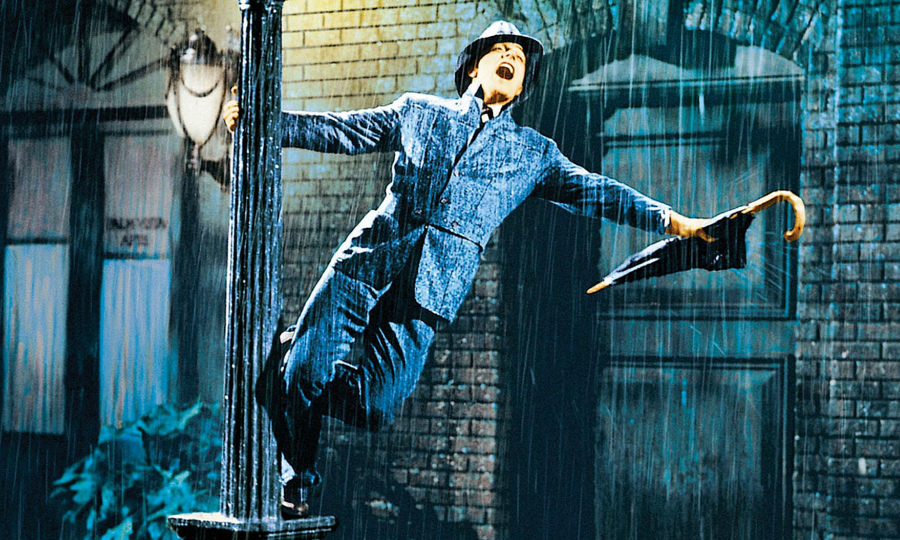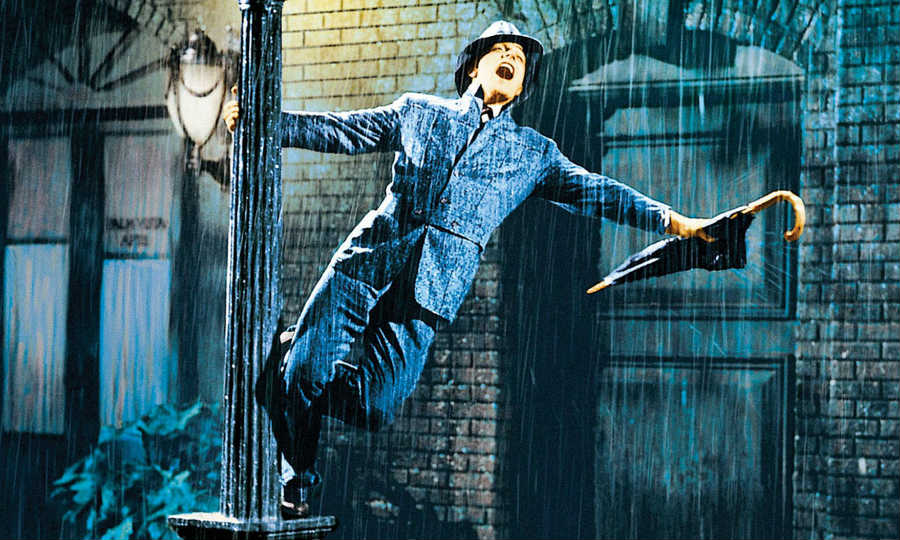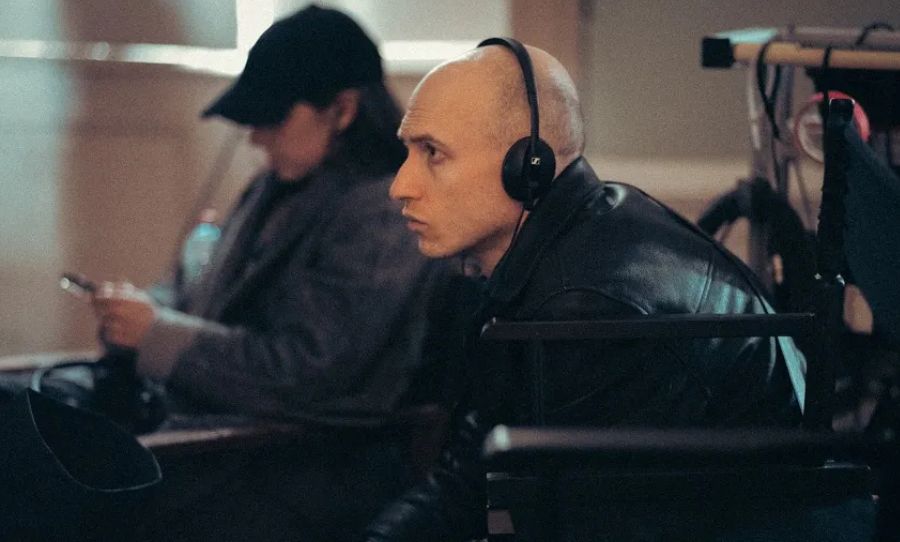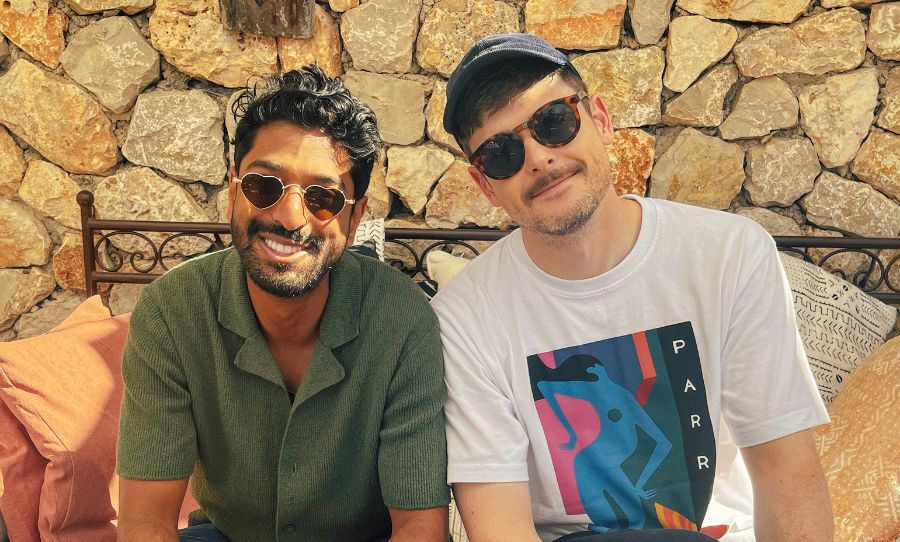Dawning on the crest of the Golden Age of Hollywood, the 1950s were a time of post war affluence, a rise in jazz and midd-class values. Most films idolised the traditional portrayal of men and women which defined some of the most prominent war films in history. The renaissance of cinema was also highlighted by some of the best movie soundtracks of the modern era.
Focused largely on grand symphonic themes we take a look back at the 1950s greatest movie scores from Hermann to Bernstein.

We reflect on the Golden Age of Hollywood and it’s magnificent scores to collect the best movie soundtracks of the 1950s from Hitchcock to Kurosawa.
10. The Big Country – Jerome Moross
A great score must have more than just a great theme and The Big Country certainly does. Jerome Moross earned an Oscar nomination for his score which danced around a playful Western theme.
There is an evident essence of romanticism and if you’re a fan of Westerns than this is a must. It’s just a classic.
9. Seven Samurai – Fumio Hayasaka
When famed Japanese director Akira Kurosawa was researching samurai lore for an upcoming film, his natural choice of composer was trusted collaborator Fumio Hayasaka. Embracing Bernard Hermann, Hayasaka chose to omit the string section of the orchestra from his score, save a cello and acoustic guitar.
Ultimately he wrote three and a half hours of music, attempting to speak to the violence that unfolds amidst nature.
8. On The Waterfront – Leonard Bernstein
Although he received an Oscar nomination for his work, Leonard Bernstein went on to score no more films after On The Waterfront. While pursued to compose for the film due to his name, Bernstein reluctantly agreed to score his first and only movie.
The noble opening theme is held by a sole french horn before a flute joins in. Cross-reference this with the tender love theme and violent drums of the gang scenes and you have a varied and dynamically impactful score worthy of your time.
7. Sunset Boulevard – Franz Waxman
Billy Walder directed one of the most brilliant film noir films of all time with Sunset Boulevard, telling the story of a once proud Hollywood actress who wishes to end her seclusion and regain past glory.
Waxman and Wilder had long been friends, having met in Europe before WWII and as such he was a natural choice to score the film. Sunset Boulevard Prelude is a stunning score highlighting the Golden Age practice of providing a melodramatic opening to a film.
6. Rebel Without A Cause – Leonard Rosenman
To accompany a magnificent performance from James Dean, Rebel without a Cause was the film score that many believe revolutionised film music. Composer Leonard Rosenman, who was James Dean’s roommate at one time, merged serialism, jazz and classical rhythms to construct on the best movie soundtracks of all time.
The groundbreaking score won Rosenmann received Academy Awards and Oscar nominations and to this day highlights to necessity of being exact and to the point when serving a film with music.
5. Vertigo – Bernard Hermann
There is something about the music of Vertigo that casts a spell upon the audience. Another Hitchcock classic to make the cut, this riveting noir thriller is shot entirely in San Francisco and heavily features Hitchcock’s most prevalent and urgent theme: erotic obsession.
Widely recognised as Hitchcock at his most tense and mysterious peak, Hermann also stepped up in Vertigo. Hermann dominated the golden age of Hollywood with his peculiar melodies and harmonic importance, and Vertigo lives on as his most spell-binding masterpiece.
4. Bridge On The River Kwai – Malcolm Arnold
For what is often offered the crown for best movie of all time, British composer Malcolm Arnold recalls he only had about “ten days to write around forty-five minutes worth of music”. Despite later describing it as “worst job I ever had in my life”, Arnorld ironically won a Grammy and an Oscar.
Based on real events wherein WWII POW’s were tasked with building a bridge to connect a railroad from Burma to Siam, David Lean directed a moving and honest, if slightly glorified, depiction of war accompanied by easily one of the best movie soundtracks of the 1950s.
3. North By Northwest – Bernard Hermann
Aflred Hitchcock’s classic North By Northwest has some of the most instantly recognisable scenes of all time (namely atop Mt. Rushmore). It’s a thriller but also one of Hitchcock’s most visually stunning film. If you need proof as to why Alfred Hitchcock is an enduring god of cinema, go no further than North By Northwest.
One of the greatest director-composer duo’s in history, Hitchcock employed Bernard Hermann to add the right amount of tension and release. Little did he know, Hermann would construct an overwhelming orchestral tour-de-force and one of the best movie soundtracks of all time.
2. Singin’ In The Rain – Lennie Hayton / Nacio Herb Brown
While only moderately successful upon release, Singin’ In The Rain rose in critical reception to eventually be regarded as the best movie musicals of all time. One of the first films from MGM to incorporate technicolour the story is innocent and adorable, while the music is iconic.
The main theme sung by Gene Kelly is a masterpiece of the stage and I dare say nothing with make you more ridiculously happy than Singin’ In The Rain.
1. Ben Hur – Miklos Rozsa
The title theme from Ben Hur is one of the greatest moments in cinema music history. Overture clocks in at a little over six minutes and confidently surmises everything that’s great about the golden age of cinema.
The flawless melody, thundering build and orchestral swells are all heavily laden with emotion and imbue Ben Hur with an untouchable quality that have seen it endure through the century of cinema.
While we’ve got you check out the best:
- Soundtracks of the ’70s
- Soundtracks of the ’80s
- Soundtracks of the ’90s
- Soundtracks of the ’00s
- Soundtracks of the ’10s



